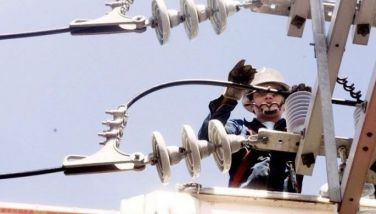Philippines urged to implement VMS for fisheries protection
MANILA, Philippines — Even after the Recto Bank incident last month, the Philippines seems to have not learned its lesson as it has yet to implement transparency at sea through vessel monitoring system (VMS) to ensure fisheries protection.
International organization Oceana said challenges have yet to be resolved on how the Philippines will be able to implement its fisheries law to deter illegal fishing and protect its territorial waters.
“Other countries have done it but the Philippines is not there yet. The law requires it but the administration has not implemented it,” Oceana president Jim Simon said in a briefing yesterday.
The VMS for all commercial fishing vessels is required under the amended Fisheries Code but has yet to be in place since the law took effect four years ago.
The VMS involves installation of monitoring device that transmits location, speed and tracks in real time, either through satellite or non-satellite-based mechanism in every fishing boat over three gross tons.
“The challenge is how the Philippines will enforce that even if changes have been made in the national legislation. The movement toward VMS is essential as this will make sure illegal fishing is reduced,” Oceana senior advisor and chief scientist Mike Hirshfield said.
Oceana Philippines vice president Gloria Ramos emphasized that while there have been initiatives undertaken by the government, a lot more needs to be done to ensure responsibility and accountability in fishing.
“There is still the mindset that the law and the fisheries sector can wait, business as usual mindset. They don’t feel that the stocks are actually depleting,” Ramos said.
“There’s a cry for it to be prioritized. But we also lack engagement from the stakeholders. If we don’t push for actions, there will be not much change,” she added.
However, Hirshfield admitted that VMS alone will not be enough to revive the declining fish stocks of the Philippines just like in other countries that implemented the system.
“It is necessary but not sufficient. Other countries did it with other science-based and responsible fisheries management,” he said.
Further, Oceana continues to push for more campaigns in the Philippines by expanding its call to stop commercial fishing in municipal waters like what it did in the Tanon Strait and Visayan Sea. It will next focus on Samar, Bicol, Leyte and Quezon, among others.
“We will also focus on sardines fisheries which is one of the most important fish in the Philippines, as well as in terms of dumping and filling which have been destroying the coastlines,” Simon said.
“We will advocate government policies that will require the reduction of the production of single use plastic especially that the Philippines has been considered one of the greatest sources of plastics in the world,” he added.
- Latest
- Trending






























